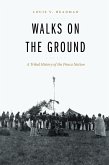World's fairs and industrial expositions constituted a phenomenally successful popular culture movement during the nineteenth and twentieth centuries. In addition to the newest technological innovations, each exposition showcased commercial and cultural exhibits, entertainment concessions, national and corporate displays of wealth, and indigenous peoples from the colonial empires of the host country. As scientists claiming specialized knowledge about indigenous peoples, especially American Indians, anthropologists used expositions to promote their quest for professional status and authority. Anthropology Goes to the Fair takes readers through the 1904 Louisiana Purchase Exposition to see how anthropology, as conceptualized by W J McGee, the first president of the American Anthropological Association, showcased itself through programs, static displays, and living exhibits for millions of people "e;to show each half of the world how the other half lives."e; More than two thousand Native peoples negotiated and portrayed their own agendas on this world stage. The reader will see how anthropology itself was changed in the process.
Dieser Download kann aus rechtlichen Gründen nur mit Rechnungsadresse in A, B, BG, CY, CZ, D, DK, EW, E, FIN, F, GR, HR, H, IRL, I, LT, L, LR, M, NL, PL, P, R, S, SLO, SK ausgeliefert werden.









